In the long quest for youthful-looking skin, natural active ingredients are gradually emerging as shining stars in the skincare industry. Bakuchiol, a natural polyphenol compound derived from plants such as Epimedium and Psoralea corylifolia, is a rising star, sparking a wave of interest in the anti-aging field thanks to its unique advantages.
Compared to traditional retinoids, bakuchiol is significantly less irritating, making it a boon for those with sensitive skin. Those with sensitive skin often exercise caution when choosing skincare products, fearing they might cause skin irritation. The emergence of bakuchiol allows them to pursue anti-aging benefits with confidence. Furthermore, bakuchiol’s high bioactivity allows it to more effectively exert its anti-aging effects, repairing and improving the skin from multiple perspectives.
From its mechanism of action, bakuchiol forms a comprehensive anti-aging system. It penetrates deep into the dermis, strengthening and repairing the collagen network. Collagen fibers in the dermis act as the “reinforcement” of the skin, providing support and elasticity. Bakuchiol promotes collagen synthesis, increasing the density and integrity of collagen fibers, thereby increasing the thickness of the dermis, plumping up the skin, and reducing the appearance of static lines. It also improves the function of elastic fibers, enhancing skin elasticity and toughness, allowing the skin to more quickly recover and smooth out after muscle contraction, effectively alleviating dynamic lines. Furthermore, bakuchiol optimizes the epidermal barrier by promoting normal differentiation of keratinocytes, maintaining the integrity of the stratum corneum, and reducing water loss. It also upregulates the expression of natural moisturizing factors, increasing stratum corneum hydration, making the skin softer and smoother, and reducing the appearance of dryness-related fine lines.
As we age, our skin gradually loses its radiance and elasticity, leading to wrinkles and sagging. The core reason behind this is a structural crisis in collagen fibers.
The collagen fibers in the skin primarily consist of type I and type III collagen, which are key components for maintaining skin structure and elasticity. However, over time and due to environmental influences such as UV radiation, pollution, and stress, the collagen fibers in the skin begin to gradually disappear. Decreased fibroblast activity leads to reduced collagen synthesis, while increased matrix metalloproteinase activity accelerates collagen degradation. This shift in activity reduces the supporting capacity of the dermis, leading to sagging skin and increasingly pronounced static lines like nasolabial folds and frown lines.
At the same time, elastic fibers are damaged in this process. Made of elastin, elastic fibers give the skin its elasticity and resilience. When these fibers are damaged, the skin cannot recover quickly enough from repeated muscle contraction, leading to the deepening of dynamic lines like crow’s feet and forehead wrinkles. Furthermore, the epidermal barrier function weakens with aging. Insufficient hydration in the stratum corneum leads to dry, rough skin, further accentuating fine lines, forming dryness-related fine lines and making the skin appear older.
Facing this severe aging challenge, bakuchiol has stepped up to the plate and launched a “defense” campaign for collagen fibers. It precisely addresses multiple collagen fiber injuries through a triple pathway of “synthesis-protection-repair.” Bakuchiol activates collagen synthesis signaling pathways in fibroblasts, such as the ERK/MAPK pathway, directly upregulating collagen gene expression, promoting collagen synthesis, and increasing collagen fiber density in the dermis. Simultaneously, it inhibits the activity of collagen-degrading enzymes (MMPs), reducing the breakdown of existing collagen and achieving a positive balance of “synthesis > degradation.” This strengthens the collagen network, fills the skin’s “support gaps,” and reduces the appearance of static lines. To protect and repair elastic fibers, bakuchiol utilizes its antioxidant properties to reduce free radical oxidative damage to elastin. It also upregulates proteins associated with elastic fibers, such as lysyl oxidase, promoting cross-linking and stabilization of elastic fibers, enhancing skin’s “resilience” and alleviating the appearance of dynamic lines. In addition, bakuchiol improves the epidermal barrier function, promotes the normal differentiation of keratinocytes, maintains the integrity of the stratum corneum, reduces water loss, upregulates the expression of natural moisturizing factors, increases the water content of the stratum corneum, reduces dry fine lines, and restores the skin to smoothness and fineness.
Targeting Collagen Fibers for Anti-Aging: From Molecular to Structural Repair
Bakuchiol’s anti-aging mechanism is like a sophisticated “molecular repair symphony,” targeting collagen fibers from multiple dimensions to achieve comprehensive protection from the molecular level to structural repair.
Strengthening the Collagen Network: Reshaping the “Supporting Framework” of the Dermis
1. Promoting Collagen Synthesis and Reversing Collagen Loss
Bakuchiol acts as a “vital stimulator” for fibroblasts, precisely activating the ERK/MAPK signaling pathway in fibroblasts. This signaling pathway acts as a “production instruction channel” within the cell. Once activated, it rapidly upregulates the expression of the COL1A1 and COL3A1 genes. These genes act as the “blueprints” for collagen synthesis, and their increased expression significantly promotes the synthesis of type I and type III collagen. Clinical research data is impressive, showing that after a period of using skincare products containing bakuchiol, collagen density in the dermis increased by over 30%. This is like adding more “reinforcement” to the skin’s “supporting skeleton,” making it stronger and more plump.
At the same time, bakuchiol acts as a “protector” of collagen fibers, inhibiting the activity of matrix metalloproteinases (MMP-1 and MMP-3). These enzymes are collagen destroyers. Under normal circumstances, their activity remains within a certain range, maintaining collagen metabolism. However, with aging and environmental influences, their activity increases, accelerating collagen degradation. The presence of bakuchiol effectively curbs this destruction, causing collagen synthesis to outpace degradation, creating a positive balance of “synthesis > degradation.” As a result, static lines that deepen due to collagen loss, such as nasolabial folds and frown lines, are seemingly lifted from within, becoming less noticeable.
2. Optimizing Collagen Fiber Arrangement and Improving Skin Plumpness
Bakuchiol not only focuses on collagen synthesis and degradation, but also strives to optimize collagen fiber arrangement. Like a meticulous designer, it strengthens the orderly cross-linking of collagen fibers, making the connections between them tighter and more orderly. This orderly arrangement strengthens the structure of the dermis and increases its thickness. Skin elasticity parameters, such as the R2 elasticity index, are significantly improved, resulting in a firmer, more plump complexion. Skin that once appeared sagging due to collagen loss is now revitalized, and deep wrinkles are gradually diminished, restoring a youthful glow.
 Protecting Elastic Fibers: Restoring Skin’s “Resilience”
Protecting Elastic Fibers: Restoring Skin’s “Resilience”
1. Antioxidant Protection, Blocking Elastin Damage
In daily life, our skin is constantly threatened by free radicals. Ultraviolet radiation, environmental pollution, and unhealthy lifestyle habits can all contribute to the production of free radicals within the skin. These free radicals act like a raging “destroyer,” attacking elastic fibers and causing oxidative breakdown. Bakuchiol, however, is a valiant “antioxidant warrior,” effectively scavenging free radicals like superoxide anions, building a strong “protective wall” for elastic fibers. Bakuchiol also inhibits the activity of elastin-degrading enzymes, such as MMP-9. MMP-9 is a natural enemy of elastin, breaking down elastin and causing damage to elastic fibers. Bakuchiol’s inhibition of MMP-9 effectively reduces damage to elastic fibers from external stimuli such as UV rays and pollution. This allows the skin to better maintain its elasticity in the face of various external challenges, slowing the progression of dynamic lines such as crow’s feet and forehead wrinkles, resulting in a more natural and youthful smile.
2. Promotes Elastic Fiber Repair and Cross-linking
In addition to providing protection, bakuchiol actively participates in the repair and cross-linking of elastic fibers. It does so by upregulating the expression of lysyl oxidase (LOX), providing critical support for the repair and stabilization of elastic fibers. LOX acts as the “glue” of elastic fibers, promoting the cross-linking and maturation of elastin precursors (tropoelastin) and enhancing the stability of the elastic fiber network.
When we make various facial expressions, our skin is repeatedly subjected to muscle contractions. If elastic fibers are damaged, the skin struggles to recover quickly after facial movements, and dynamic lines gradually transform into static lines. Bakuchiol helps the skin recover more quickly after repeated facial movements, reducing the transition from dynamic lines to static lines. This allows the skin to maintain its resilience, ensuring wrinkles are never a problem, whether you’re laughing heartily or raising your eyebrows in surprise.
Epidermal Barrier Optimization: A Hydrating Base for Anti-Wrinkle Aids
1. Enhances the Stratum Corneum’s Moisture Retention
The epidermis is like a castle, and the stratum corneum is its “walls.” Its moisture retention directly affects the skin’s hydration level. Bakuchiol acts like a diligent “craftsman,” promoting the differentiation of keratinocytes and strengthening the structure of the stratum corneum. It also upregulates the expression of natural moisturizing factors such as filaggrin and loricrin. These moisturizing factors act like “little sponges,” absorbing and retaining moisture, increasing the stratum corneum’s water content by 25%. When the stratum corneum is well-hydrated, the skin becomes soft and smooth, and superficial fine lines caused by dryness, such as those around the eyes, are reduced. Imagine, for example, once dry, rough skin becomes hydrated and plump with bakuchiol, and fine lines gradually disappear, giving the skin a healthy, radiant glow, as if well-hydrated.
2. Repairs barrier function and reduces external irritants
Bakuchiol also supports the integrity of the epidermal barrier by regulating the expression of tight junction proteins (such as occludin and claudin-1). These tight junction proteins are like the “bricks” of a wall; their tight connections determine the strength of the epidermal barrier. Bakuchiol upregulates the expression of these proteins, strengthening the epidermal barrier and reducing transepidermal water loss (TEWL).
This makes it difficult for external irritants, such as UV rays, pollutants, and allergens, to penetrate the epidermal barrier and indirectly damage the collagen fibers in the dermis. Bakuchiol provides comprehensive protection for the skin, from internal moisturizing to external defense, keeping it youthful in a healthy environment.
Anti-inflammatory and Antioxidant Effects: Blocking Photoaging and Chronic Inflammation Pathways
1. Scavenging Free Radicals and Inhibiting Oxidative Stress
Oxidative stress plays a crucial role in the aging process of the skin. Ultraviolet radiation, environmental pollution, and other factors can cause the generation of large amounts of free radicals in the skin. These free radicals attack the DNA, proteins, and lipids of skin cells, causing severe damage to collagen fibers. Bakuchiol, with its potent antioxidant capacity, is a “killer” of free radicals.
In vitro experiments have shown that bakuchiol has a scavenging rate of over 85% for DPPH free radicals. When skin is exposed to UVB radiation, a large amount of reactive oxygen species (ROS) is generated within cells, and bakuchiol can significantly reduce these ROS levels. It acts like a “free radical vacuum,” scavenging these harmful free radicals, reducing oxidative stress damage to collagen DNA, thereby delaying the formation of photoaging wrinkles. Let’s enjoy the sunshine without worrying about premature wrinkles.
2. Inhibits the Inflammatory Cascade
Chronic inflammation is also a contributing factor to skin aging, leading to increased release of inflammatory factors such as IL-6 and TNF-α. These inflammatory factors activate collagenase, accelerating collagen degradation, while also affecting fibroblast activity and reducing collagen synthesis. Bakuchiol effectively inhibits the inflammatory cascade by regulating the NF-κB signaling pathway.
It acts as a brake on the inflammatory response, reducing the release of pro-inflammatory factors such as IL-6 and TNF-α, lowering inflammation-mediated collagenase activation, and protecting collagen fibers from the “depletion” of chronic inflammation. Bakuchiol can significantly improve wrinkles caused by acne and rough skin caused by photoaging. It keeps skin healthy and youthful, free from the troubles of inflammation.
From Skincare to Comprehensive Anti-Aging
Beauty and Skincare: Diversified Product Form Development
Bakuchiol has demonstrated tremendous potential in the beauty and skincare sector, with numerous brands developing diverse product formats to cater to consumers with diverse skin types and anti-aging needs.
Anti-wrinkle serums are a key application for bakuchiol. These serums feature a complex “collagen regeneration + barrier repair” formula, combining bakuchiol with a variety of active ingredients. For example, peptides act as “signal messengers” for the skin, stimulating collagen production and working synergistically with bakuchiol to further promote collagen regeneration and enhance skin elasticity. Furthermore, barrier-repairing ingredients like phytosteryl oleate replenish skin lipids, repairing a damaged skin barrier and enabling better absorption of nutrients. This complex anti-wrinkle serum is ideal for deep anti-aging treatments for mature skin, which presents complex skin conditions, including wrinkles, sagging skin, and weakened barrier function. Anti-wrinkle serums penetrate deep into the skin, improving skin’s condition in multiple ways and restoring a radiant glow to mature skin.
For those with sensitive skin, mild anti-aging creams are an ideal choice. These creams utilize a low concentration of bakuchiol, which maximizes its anti-aging benefits while minimizing irritation to sensitive skin. They are also formulated with ingredients such as ceramides and hyaluronic acid. Ceramides are a crucial component of the skin barrier, filling the gaps between skin cells, strengthening the barrier function, and reducing damage from external irritants. Hyaluronic acid is a renowned moisturizing ingredient, attracting large amounts of water and maintaining hydration. Low-concentration bakuchiol combined with ceramides and hyaluronic acid meets the initial anti-aging needs of sensitive skin. Those with sensitive skin often hesitate to choose anti-aging products due to concerns about irritation. The emergence of mild anti-aging creams allows those with sensitive skin to embark on their anti-aging journey with peace of mind, gradually improving fine lines and sagging skin with gentle care.
With increasing awareness of sun protection, integrated sunscreen and anti-aging products have become a new favorite in the market. Bakuchiol’s photoprotective properties have opened up new possibilities for the development of this type of product. Researchers have leveraged this to develop a daytime sunscreen product that combines sun protection with collagen protection. The sunscreen ingredients used are a combination of physical and chemical sunscreens. Physical sunscreens, such as titanium dioxide and zinc oxide, form a protective film on the skin’s surface, reflecting UV rays. Chemical sunscreens absorb UV rays and convert them into heat, releasing them as heat. Furthermore, the addition of bakuchiol not only provides sun protection but also protects the skin’s collagen fibers from UV damage, maintaining its elasticity and radiance. This all-in-one sunscreen and anti-aging product is ideal for daily use, providing comprehensive protection for the skin, whether during outdoor activities or commuting, allowing us to enjoy the sun without worrying about aging.
Healthcare: Extended Applications for Deep Anti-Aging
Bakuchiol’s applications are not limited to the beauty and skincare fields; it also shows broad prospects in healthcare, offering further applications for deep anti-aging.
Bakuchiol also plays a crucial role in wound repair. When the skin is injured, the activity of fibroblasts is crucial for wound healing. Bakuchiol promotes fibroblast proliferation, acting as a “vitalizing factor” that spurs them into action and accelerates collagen synthesis. Collagen is a crucial building block for skin repair, filling wounds and promoting wound healing. Bakuchiol also accelerates collagen deposition, creating a tighter alignment of collagen fibers within the wound, thus strengthening the skin. This property gives bakuchiol great potential for scar repair and postoperative skin reconstruction. For example, for scars from burns and scalds, as well as postoperative skin injuries, the use of medications or dressings containing bakuchiol can promote wound healing, reduce scar formation, and accelerate the recovery of healthy skin.
Bone health is also a potential application area for bakuchiol. As we age, many people face the problem of osteoporosis. Osteoporosis leads to brittle bones, making them prone to fractures, and seriously impacting quality of life. Bakuchiol promotes collagen synthesis through a mechanism similar to that which stimulates collagen synthesis in the skin. Preclinical studies have shown that bakuchiol can increase osteoblast activity by 25%. Osteoblasts are the cells responsible for bone formation. Bakuchiol’s increased osteoblast activity means it can promote new bone formation and increase bone density. Furthermore, bakuchiol may inhibit the activity of osteoclasts, the cells responsible for bone resorption. Inhibiting osteoclast activity can reduce bone loss. Through these two effects, bakuchiol may offer a new hope for treating osteoporosis. In the future, health supplements or medications containing bakuchiol may help prevent and treat osteoporosis, promoting stronger and healthier bones.
Future Research Directions: New Possibilities for Precision Anti-Aging
To further explore the anti-aging potential of bakuchiol, researchers are actively exploring future research directions, opening up new possibilities for precision anti-aging.
Nano-delivery systems are an important area of future research. While bakuchiol has promising anti-aging effects, its transdermal absorption has been a challenge. The emergence of nano-delivery systems offers a new approach to addressing this issue. By encapsulating bakuchiol in nanoparticles, such as liposomes and nanoemulsions, researchers are leveraging the nanoparticles’ small size and high permeability to enhance its transdermal absorption. This allows bakuchiol to penetrate deeper into the skin and reach its target, even at low concentrations, achieving high efficacy at low concentrations. This not only reduces bakuchiol usage and costs, but also enhances its anti-aging effects and minimizes potential side effects. With the continued advancement of nanotechnology, the application of nanodelivery systems in bakuchiol anti-aging products will become increasingly widespread, providing consumers with a more effective and safer anti-aging experience.
Combination anti-aging strategies are also a focus of future research. The synergistic effect of bakuchiol with other anti-aging ingredients can create a comprehensive solution encompassing collagen synthesis, fiber protection, and cell renewal. For example, when used in combination with phosphatidylcholine, phosphatidylcholine can promote the synthesis of glycosaminoglycans, substances that help maintain skin moisture and elasticity. Synergistically, phosphatidylcholine and bakuchiol can promote collagen synthesis and fiber protection from different angles, improving skin firmness and elasticity. When combined with retinoic acid, although retinoic acid is highly irritating, bakuchiol’s low irritation can complement it. This combination can enhance cell renewal and anti-aging effects while controlling irritation. Through the appropriate combination of ingredients and formulation design, combined anti-aging solutions can achieve a “1 + 1 > 2” effect, providing consumers with more comprehensive and precise anti-aging options. In the future, researchers will continue to explore the optimal combination of bakuchiol and other ingredients to develop more effective combined anti-aging products to meet the growing demand for anti-aging.
 Redefining Collagen-Protecting Anti-Aging
Redefining Collagen-Protecting Anti-Aging
The emergence of bakuchiol has brought a completely new concept and approach to the anti-aging field. It no longer focuses solely on improving the skin’s surface, but instead penetrates deeper into the skin’s structure, fundamentally addressing collagen fiber damage. Through multiple mechanisms, including promoting collagen synthesis, protecting elastic fibers, optimizing the epidermal barrier, and providing anti-inflammatory and antioxidant benefits, bakuchiol achieves comprehensive improvements, from molecular repair to overall anti-aging.
In the future, with the continued deepening of bakuchiol research and advancements in technology, we believe it will play a significant role in even more areas. Whether in beauty and skincare, healthcare, or other related fields, bakuchiol is poised to become a core force in anti-aging. Let us all look forward to bakuchiol bringing us more surprises and ushering in a new era of anti-aging.



















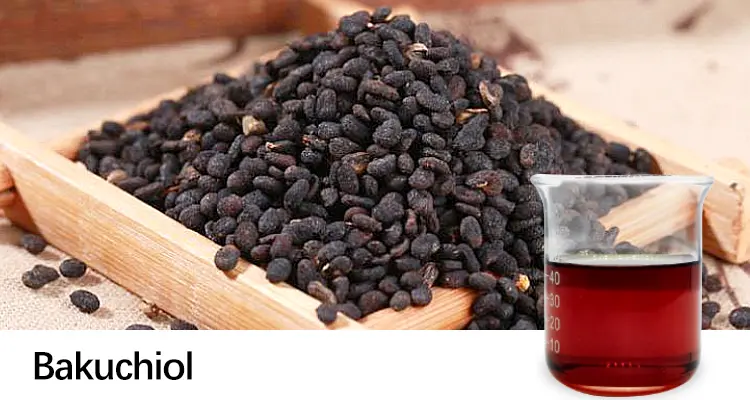
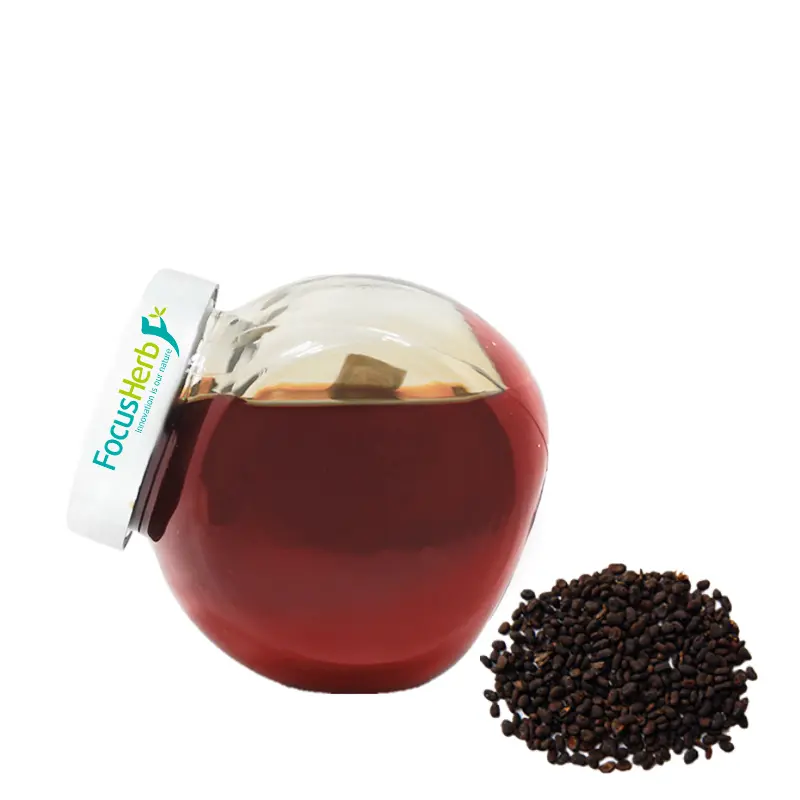
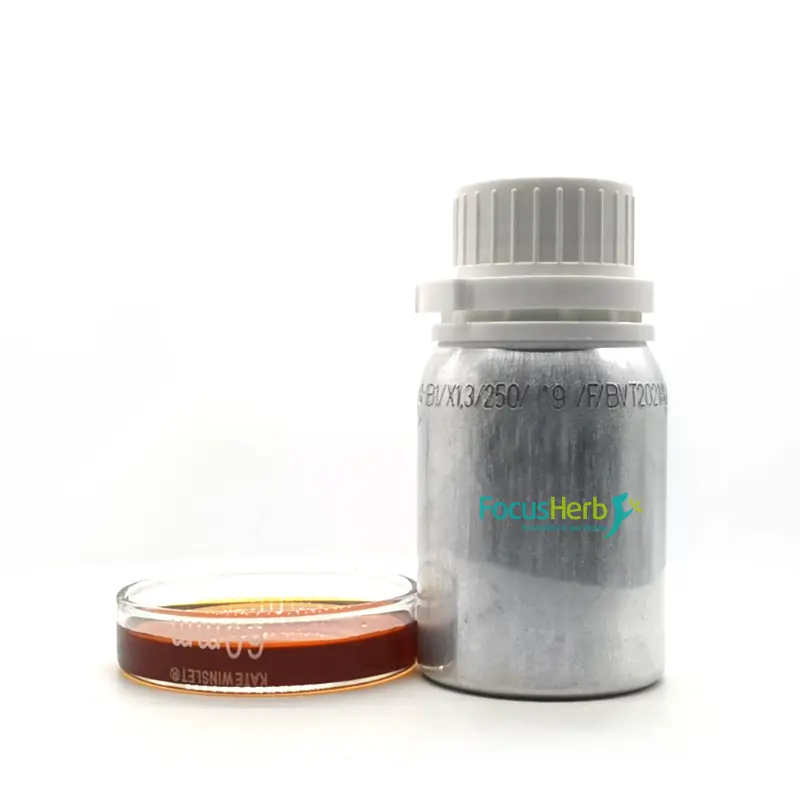 Protecting Elastic Fibers: Restoring Skin’s “Resilience”
Protecting Elastic Fibers: Restoring Skin’s “Resilience”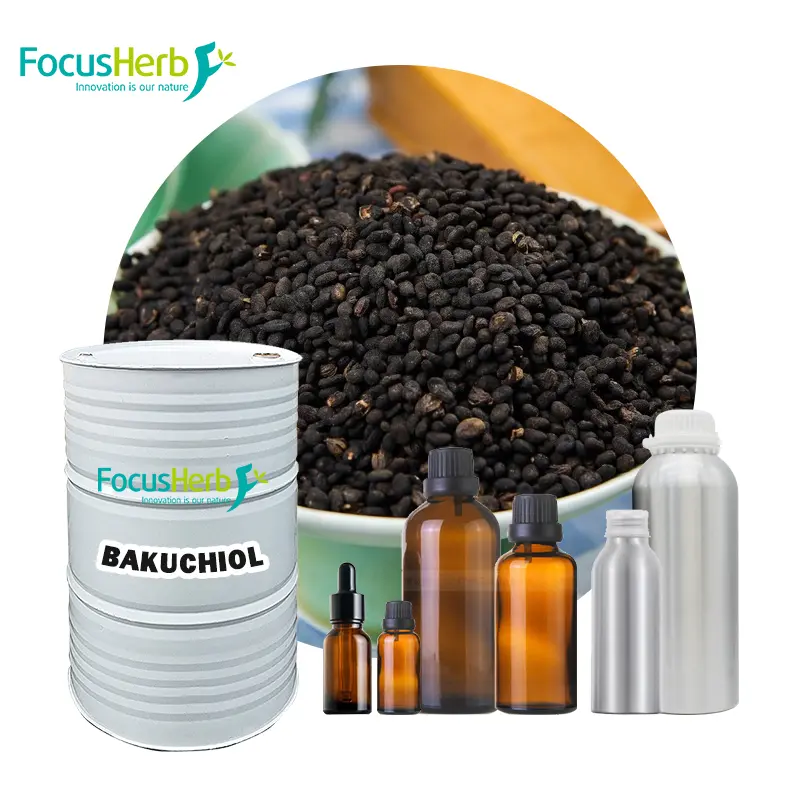
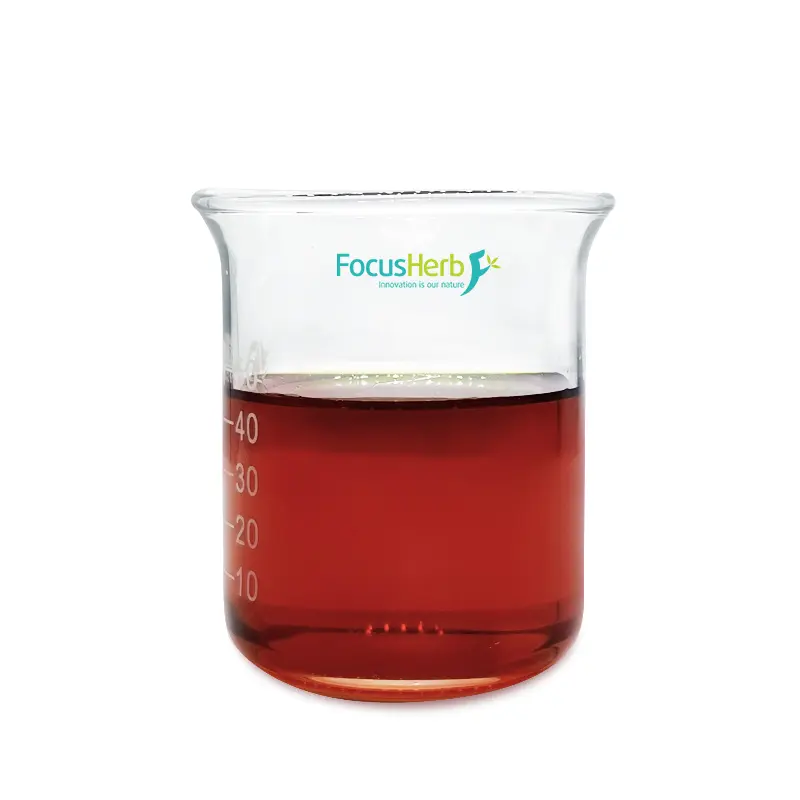 Redefining Collagen-Protecting Anti-Aging
Redefining Collagen-Protecting Anti-Aging